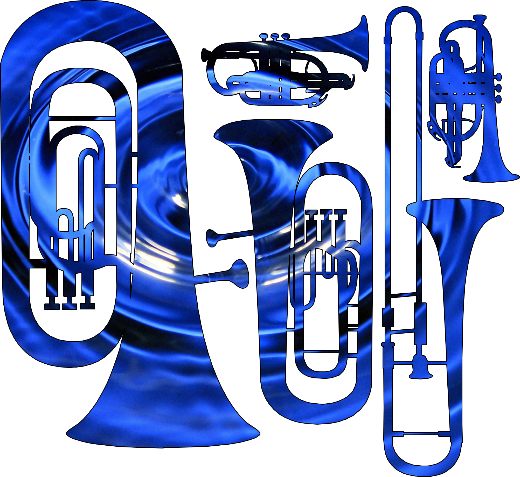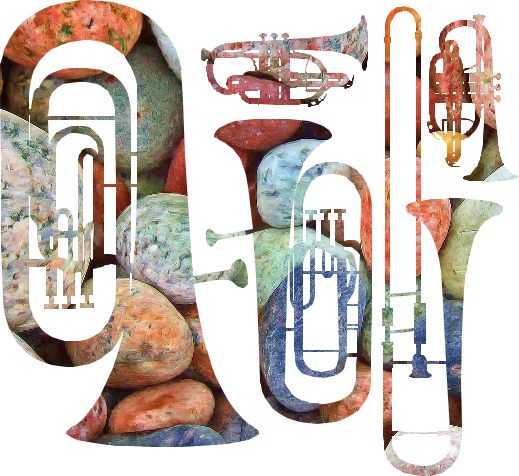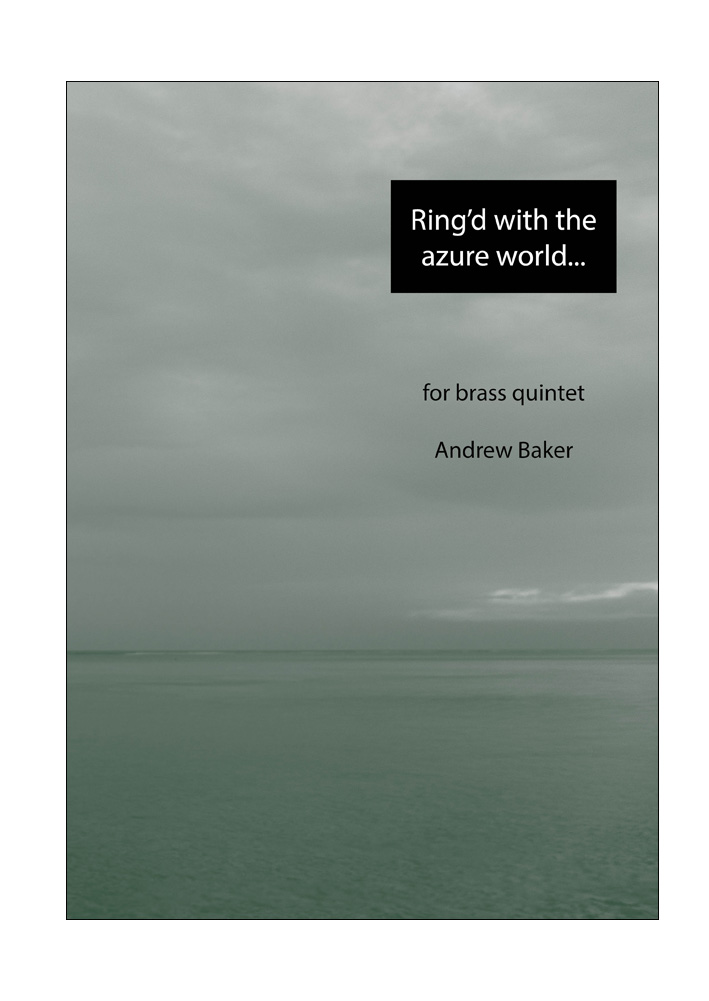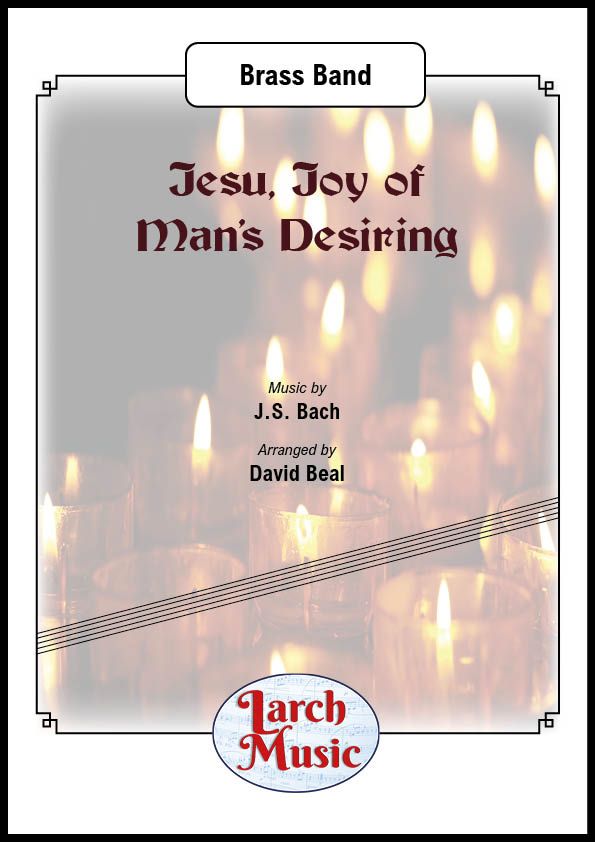Results
-

Blue | Gansch arr. John Doyle
A truly stunning piece of music written by the world famous Thomas Gansch of Mnozil Brass, and artfully arranged for Brass Band. The stage performance of this piece includes a Solo septet of three trumpets,tenor horn, two trombones and a tuba. The main band fills in the accompaniment. Trumpet 1 has a tricky part to play, but all other parts are straightforward. First performed by the Leyland Band at Music in Concert 2014, this is a real favourite, and a stunning show piece. Instrumentation: Solo Septet: Trumpets 1, 2 and 3 Solo Tenor Horn Trombones 1 & 2 Bb Tuba Main Band: Soprano, Solo, Repiano, 2nd and 3rd Cornets Flugelhorn 1st and 2nd Tenor Horns 1st and 2nd Baritone 1st, 2nd and Bass Trombone Euphonium Eb and Bb Basses Drum Kit Tambourine Bongos ISMN: 979-0-708127-94-9
-

Gymnopedie No 1 | Satie arr. Leigh Sharpe
The Gymnopedies by Erik Satie are three piano compositions of extraordinary beauty. Gentle, eccentric pieces which defied the classical tradition. The name Gymnopedie is thought to be a reference to Satie's joke at a party when, concerned by his lack of formal qualifications, on being asked his profession, he replied Gymnopaedist - which means - 'naked athlete'.Instrumentation:Soprano, Solo, Repiano, 2nd and 3rd CornetsFlugelhornSolo, 1st and 2nd Tenor Horns1st Baritone1st, 2nd and Bass TromboneSolo and 2nd EuphoniumEb and Bb BassesPercussion parts:1: Glockenspiel2: CymbalsISMN: 979-0-708127-86-4
-
 £25.00
£25.00Ring'd with the Azure World
DescriptionRing'd with the Azure World was commissioned by the Harmonia Brass quintet for their final recital at the University of Huddersfield in 2016.He clasps the crag with crooked hands;Close to the sun in lonely lands,Ring'd with the azure world, he stands.The wrinkled sea beneath him crawls;He watches from his mountain walls,And like a thunderbolt he falls.- The Eagle by Alfred, Lord TennysonThe music was inspired by Tennyson's poem reproduced above; it seeks simply to reflect the spirit of the poem. It opens in sparse, lonely mood as the eagle surveys the world beneath. The work quickens in three bursts using metrical modulation to disguise the actual moment of acceleration, reflecting the lazy energy stored in the circling raptor before concluding dramatically in a fall 'like a thunderbolt'. Tennyson's poem, although brief, has inspired much analysis and writing, and is notable for being written in the (then somewhat unfashionable) iambic tetrameter, indicating a foursquare emphasis reflected in the main theme of the music. This is heard first in an octatonic version and later in a purely tonal (if somewhat modal) version. The instrumentation reflects that of Harmonia Brass, a quintet composed of brass band instruments (two B flat cornets, an E flat tenor horn, tenor trombone and E flat tuba). However the music is also available for the more conventional brass quintet of two trumpets, french horn, trombone and tuba.To listen to an audio export preview and follow the music, click play on the video below!Performance Notes1st cornet/trumpet requires a cup mute, ideally with an adjustable cup (the marking "tight" denotes that the cup should be adjusted closer to the bell), and a harmon mute with the tube removed (denoted by "TR" in the score). 2nd cornet/trumpet requires a fibre straight mute and a harmon mute with the tube removed. Tenor horn require a fibre straight mute and a practice mute (any sort) - in the orchestral brass version the french horn requires a stop mute. Trombone requires a cup mute (only). Tuba requires a fibre straight mute and a practice mute (of any sort).Metronome marks should be closely observed - starting either too fast or too slow will have a disproportionate effect on the tempi later in the piece due to the metrically controlled tempo changes.
Estimated dispatch 7-14 working days
-
£72.00
Easy Peasy - Suite in Five Movements - Hilde Hoyvik Dahl
This suite is written for beginning band at grade level 1. It consists of five short movements of various style. You may perform the movements as single pieces. The composition consist basically of three voices to make it playable also for smaller ensembles.However, it's preferable that trumpet/cornets play part no. 1 and clarinets play part no. 2 when necessary.
Estimated dispatch 12-14 working days
-
 £25.00
£25.00Jesu. Joy of Man's Desiring - Cornet Feature & Brass Band - J.S. Bach
Features all cornets in three choirs of 3 players
Estimated dispatch 3-5 working days
-
£34.95
HIGH COUNCIL, The (Brass Band Set) - Ray Steadman-Allen
This march was written at the request of the then Chief of the Staff, Commissioner Arnold Brown for the welcome meeting of the 1974 High Council, a gathering of The Salvation Army's top leaders from around the world who meet to elect a new General. The scintillating music is filled with many wonderful and surprising shifts of key, rhythm and instrumental colour. Evangeline Booth's song 'The world for God' provides the international reference while at the trio's peak, the composer joins three tunes in impressive counterpoint; 'We're the Army' (cornets), 'A Robe of White' (horns and baritones) and 'Bound for Canaan's Shore' (trombones). The march ends with a dazzling shift into triple time and an impressive molto allargando codetta.
Estimated dispatch 7-14 working days
-
£34.95
MARCH OF THE HOURS (Brass Band Set) - Emil Soderstrom
March of the Hours was first performed at Star Lake Music Camp in 1962 with the composer supplying an informative listening guide which was printed in the published score; "The phrases are of 12 crotchets each (three bars) signifying the 12 hours. Up to the trio, the music describes the headlong search for pleasure by the thoughtless. Abruptly, the trio brings 'I need thee every hour', but an episode employing the original theme pushes it aside until it reappears, this time against a background of chimes of the full hour (Westminster chimes). While the hour strikes 12, a paraphrase of the opening strains of 'When the trumpet of the Lord shall sound and time shall be no more' is heard. Here the music stops, to be followed by the trumpet sounding (cornets and trombones) and the rest of the band responds with 'When the roll is called up yonder' with a final 'I'll be there'."
Estimated dispatch 7-14 working days
